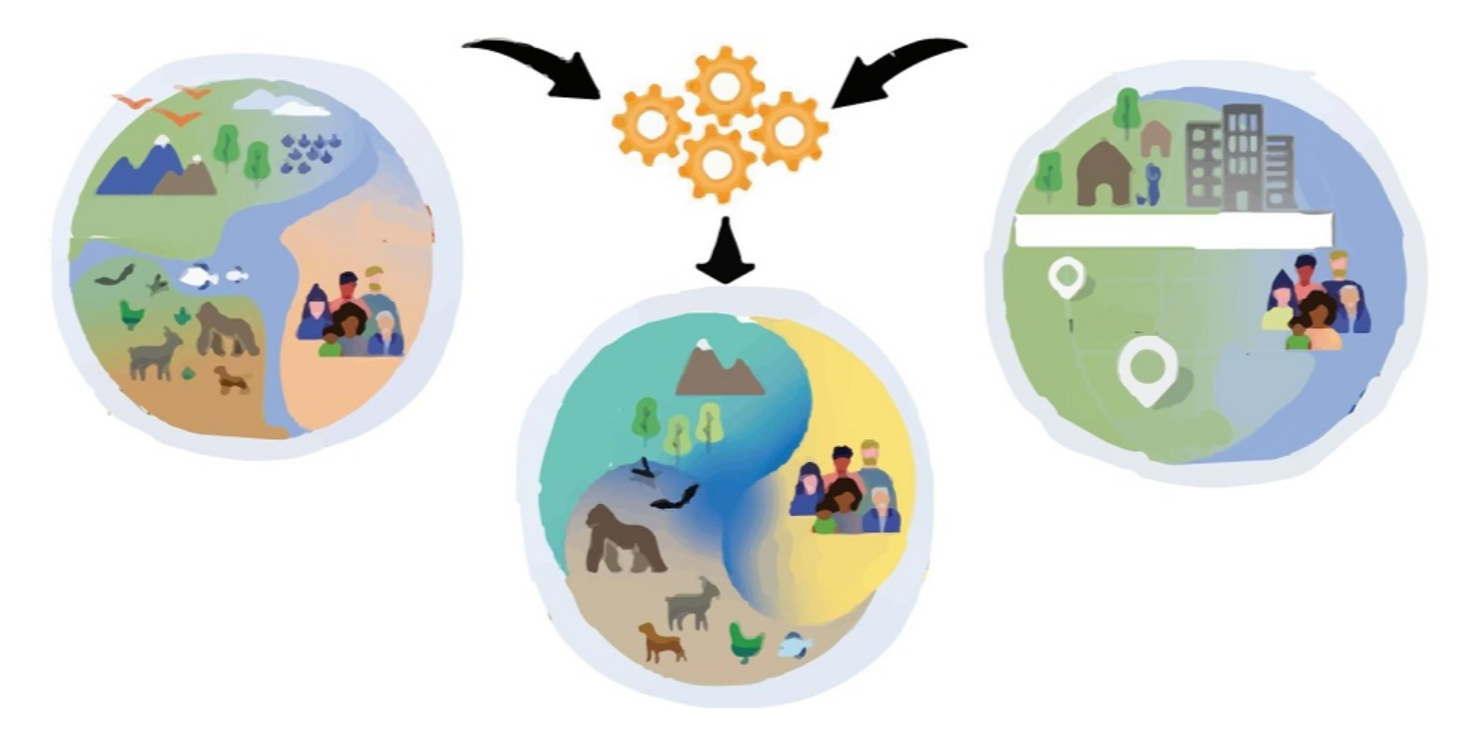As wildfires, heat waves, floods, and other interconnected crises intensify in 2025, recognising the link between human, animal, and environmental health – and acting across sectors – is absolutely essential.
This World One Health Day, nine international organisations make four key recommendations and call for action regionally, nationally, and globally to advance the implementation of the One Health approach in Europe.
As representatives of the EU Cross-agency One Health Task Force[i] and the European and Central Asia Quadripartite[ii], we jointly acknowledge the urgency of addressing risks where human, animal, plant and environmental health intersect. These risks, intensified by climate change, pollution, biodiversity loss, land use change, complex food chains and increased trade and travel demand stronger and more integrated prevention and response measures.
The summer of 2025 was the warmest on record[iii]. By early September, nearly one million hectares of land had been lost to wildfires in the EU – far exceeding the long-term annual average of 280,000 hectares[iv]. Marine heatwaves affected nearly the entire Mediterranean, amplifying ecological stress and threatening livelihoods.
Record-breaking heat and extended mosquito seasons have fuelled the spread of West Nile virus, chikungunya, and dengue, while also driving a rise in heat-related illnesses, foodborne infections, and pressure on health systems – especially affecting vulnerable populations. At the same time, animal diseases such as bluetongue, lumpy skin disease and avian influenza threaten animal welfare and food security.
These environmental disruptions further increase the risk of zoonotic- and transboundary diseases, as habitat shifts, unsustainable land use and agricultural practices bring wildlife, livestock, and humans into closer contact.
In light of this, we work closely with the European Commission and call on all stakeholders – governments, other institutions (including financial institutions), civil society, academia, and the private sector – to intensify their commitment to advancing One Health at all levels.
To achieve this, we underscore the urgent need to:
As we celebrate World One Health Day, the challenges we face serve as a powerful reminder of our interconnected vulnerabilities and shared responsibilities. To prevent, prepare and respond to the next pandemic, no sector or country can act alone: we must act together, now.
Through dedicated cooperation and proactive measures, the EU Cross-agency One Health Task Force and the European and Central Asia Quadripartite commit to implementing the One Health approach. We invite all partners to join us in this essential endeavour for the health of people, animals, and the planet.
[i] EU One Health Task Force: A joint initiative of five agencies of the European Union that have a technical and scientific mandate in the areas of environmental sustainability, public health and food safety. Members include European Centre for Disease Prevention and Control (ECDC), European Medicines Agency (EMA), European Food Safety Authority (EFSA), European Environment Agency (EEA) and European Chemicals Agency (ECHA) with the contribution of the European Commission/DG SANTE as observer.
[ii] Quadripartite: The Regional One Health Coordination Mechanism for Europe facilitates cooperation between the regional offices of Food and Agriculture Organization of the United Nations (FAO), United Nations Environment Programme (UNEP), World Organisation for Animal Health (WOAH) and World Health Organization (WHO) for the WHO European Region to address risks at the human-animal-ecosystem interface and mainstream the One Health approach.
[iii] Source: https://climate.copernicus.eu/climate-bulletins
[iv] Source: https://joint-research-centre.ec.europa.eu/projects-and-activities/natural-and-man-made-hazards/fires/current-wildfire-situation-europe_en https://joint-research-centre.ec.europa.eu/projects-and-activities/natural-and-man-made-hazards/fires/current-wildfire-situation-europe_en
[v] Source: Current evidence of the economic value of One Health initiatives: A systematic literature review – ScienceDirect
